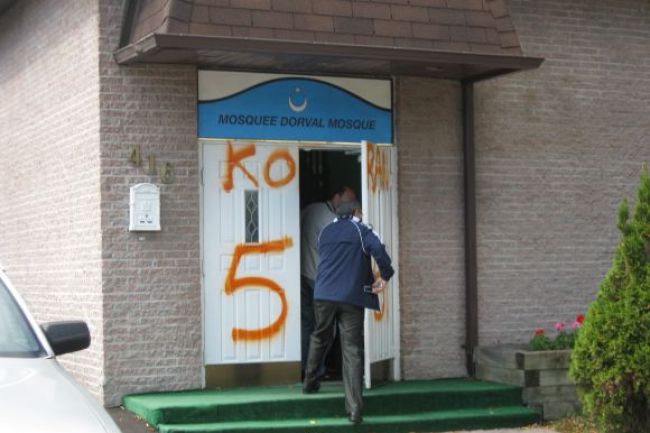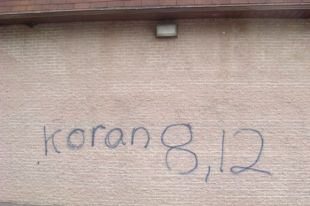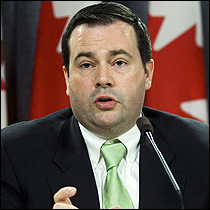Naema Ahmed was writing a French exam in a Muslim face covering Tuesday morning when she was called out of class and presented with an ultimatum: the veil or school.
She chose her religious veil and went home. It was the Egyptian immigrant’s second attempt to enroll in a government-subsidized French class and her second effective expulsion by Quebec authorities – part of a hardening line over religious headwear in the province.
Quebec says it is preparing new rules on religious displays for those seeking to use public services in the province. But yesterday the government made it clear there were no doubts about its intentions.
“There is no ambiguity on this question: If you want to [attend]our classes, if you want to integrate in Quebec society, here our values are that we want to see your face,” Immigration Minister Yolande James said.
Quebec has staked out an increasingly tough position on religious displays, at a time when the province faces a growing presence of Muslims and other religious minorities. Premier Jean Charest’s Liberal government has come under pressure from the opposition Parti Québécois to adopt measures to protect Quebec secularism and the equality of men and women.
Ms. James promised the government would bring in tougher though unspecified measures: “We are working on appropriate action that we will take in the coming time.”
Ms. Ahmed’s case has already reignited the explosive debate over the accommodation of religious minorities in Quebec. The 29-year-old had chosen to leave a government French class rather than expose her face at a Montreal college last fall; she said she turned to government-sponsored classes at a community centre in her neighbourhood because she was determined to learn French.
She said no one complained about her veil since she started attending classes in the new school in late January. But on Friday, after her story had gained widespread media attention in Quebec, a teacher at the school spotted her and alerted provincial officials, who dispatched a civil servant to the school. He was accompanied by an Arabic interpreter.
Ms. Ahmed said that when she saw the Quebec official, she started to cry. “It wasn’t fair for them to ask me to leave the exam,” she said in a phone interview. “I feel like the government is following me everywhere.”
While there is no law banning the wearing of religious headwear in Quebec, officials say they were acting yesterday on the basis of “pedagogical principles.” A student’s mouth should be visible so the teacher can work on pronunciation, one official said.
Ms. Ahmed was told that she could follow French classes online. But the mother of three said she’s feeling depressed and doesn’t know if she’ll pursue her lessons. “I’ll just stay in my house. This will solve the problem.”
On Monday, Christine St-Pierre, the Quebec minister responsible for the status of women, called the niqab and burka “ambulatory prisons” that violate a woman’s right to equality.
“There are people in Quebec, in Canada, and other countries around the world, who have gone to Afghanistan and spilled their blood so that these things won’t be tolerated,” Ms. St-Pierre said. “Here, we cannot tolerate this sort of thing.”

 This coming Sunday’s Eid holiday marks the end of Ramadan, the Muslim fasting month, but the occasion was marred for Dorval Mosque’s congregation by a fourth act of graffiti vandalism within 14 months.
This coming Sunday’s Eid holiday marks the end of Ramadan, the Muslim fasting month, but the occasion was marred for Dorval Mosque’s congregation by a fourth act of graffiti vandalism within 14 months. A small mosque in a quiet, residential neighbourhood in Dorval has fallen victim to a third graffiti vandalism attack in the space of 11 months, with no suspects retained after the first two incidents. “”This person is not a graffiti artist. This person is trying to give a message,” said Dorval Mosque’s president Mehmet Deger, alluding to the nature of the scrawls left each time on one of the mosque’s walls.
A small mosque in a quiet, residential neighbourhood in Dorval has fallen victim to a third graffiti vandalism attack in the space of 11 months, with no suspects retained after the first two incidents. “”This person is not a graffiti artist. This person is trying to give a message,” said Dorval Mosque’s president Mehmet Deger, alluding to the nature of the scrawls left each time on one of the mosque’s walls.